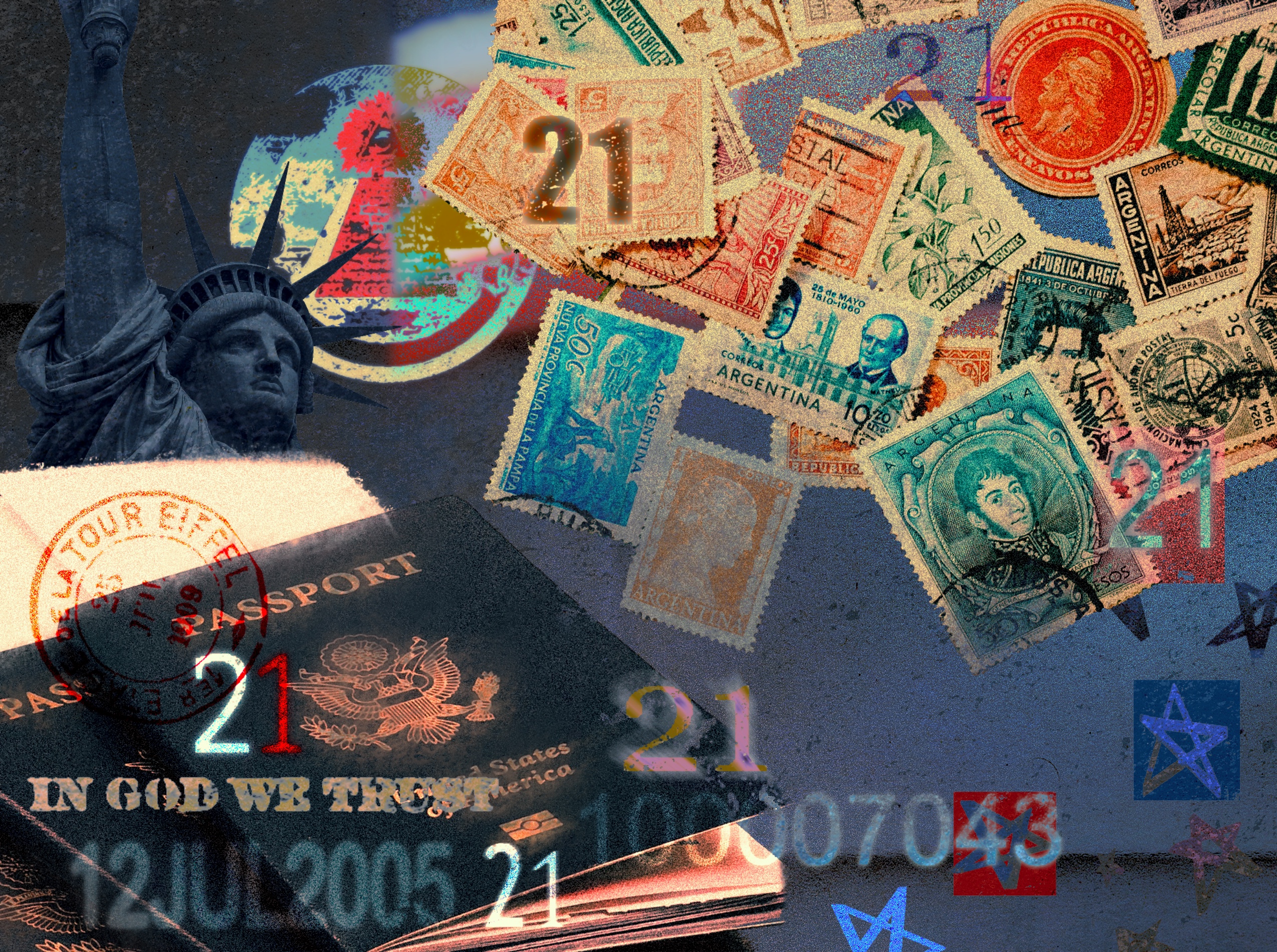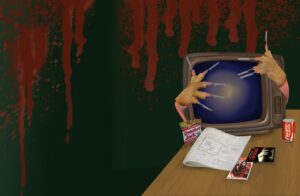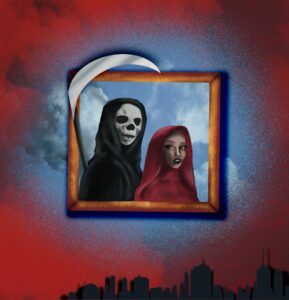After a blistering three-year run of singles, collaborations, and features, 21 Savage’s third studio album feels less like a victory lap and more like a tired retread of familiar ground. Compromised by a half-hearted genre shift and a misguided branding strategy, Savage’s american dream (2024) is, ultimately, little more than another uninspired exercise in coasting on clout.
Born in the U.K., a seven-year-old Savage and his mother immigrated to Atlanta on a one-year visa that he would, two decades later, be arrested for overstaying, making national headlines for the revelation of his Britishness. In October 2023, the announcement of his newly-obtained green card would cause a resurgence in memes and coverage that Savage has, evidently, tried to capitalize on in american dream.
The album’s SHEIN-esque veneer of substance frays on the barest inspection, revealing a teetering foundation of gimmicks and genre clichés. The album’s eponymous opening track, a spoken-word voice memo from Savage’s mother narrating “all the trials / and all the pain” of his come-up, is hollow, verging on corny. These “trials and pain” only reappear with intention in “letter to my brudda,” a warbling interlude unenthusiastic in its reflection, and “dark days,” a molasses-slow closing ballad dedicated to a younger Savage.
While I’m disinclined to demand introspection from a hardened persona like Savage, considering the album’s context as a retelling of his origin story, one might assume “letter to my brudda” is an ode to any one of Savage’s departed loved ones: his brother Quantivayus, his best friend Johnny, or his “left hand” Larry, each lost to gang violence. Instead, Savage devotes the song to rapper Young Thug, who was arrested in May 2022 on racketeering charges, only sparing his best friend a glancing mention: “Hard work, tryna keep the past behind me / I still be havin’ flashbacks ’bout Johnny.” Savage wades ankle-deep into his past, but cannot bring himself to dive deeper, relinquishing any opportunity for candor in exchange for another tired discussion of his come-up—“Fast forward and the major label signed me.”
“dark days” closes the album with a similarly shallow meditation on his life’s journey, backed by a cheesy feature from Mariah the Scientist. The conclusion? “Even gangsters cry.” “dark days” culminates with another stilted monologue from Savage’s mother reaffirming that “dreams really do come true.” Savage’s final reflection on his upbringing is, at least, a truly American approach to introspection: toothless when it matters, self-congratulatory when it doesn’t, and ultimately constructed with the barest ingredients necessary to be fit for sale.
Perhaps toothless is the best word to describe american dream: though each track rehashes Savage’s usual material (his stone-cold killer persona is reiterated ad nauseam), it lacks bite. It’s an empty threat of an album—there’s an unshakable sense that nothing real lies behind each bar on this project, paradoxically billed as his most autobiographical. The dynamism and spark that characterized his earlier projects and cemented his place within the zeitgeist are noticeably absent here.
The fault lies with the album’s discordant mix of stylistic experimentation and inertia. The only novel aspect of american dream (relatively speaking, as compared to Savage’s previous releases) is its sampling: 10 out of 15 tracks are based on crooning vocal samples where his projects have, historically, relied on trap beats. However, doing something new is hardly an excuse to do it poorly. Track after track, Savage fails to capitalize upon anything the beat offers him. His delivery veers from menacing to listless, with moments where he’s downright lethargic on the beat. On “pop ur shit,” where the hook is just that—“pop your shit,” over and over—the listener barely has time to be relieved they’ve broken free from eight egregious measures of dispassionate shit-popping before Savage delivers some of the worst bars on the whole album: “What you smokin’? / Uncle Snoop, / It smell like gas / I think somebody pooped.”
The degree to which the featured artists shine makes Savage’s indifference especially glaring. While Burna Boy and Metro Boomin can’t entirely save the mediocre hook on “just like me,” Travis Scott’s bouncy opening verse on “neé-nah” infuses the track with much-needed momentum. Combined with a redemptive Metro on production, Savage is reinvigorated enough to see the track through.
Besides “née-nah,” american dream’s most unified track is lead single “n.h.i.e.,” featuring Doja Cat. Here, Savage’s drowsy delivery feels intentional amid the track’s dreamlike atmosphere. Doja Cat’s feature is hypnotic, playing off of Savage with a characteristic irreverence that centers her as the song’s undisputed highlight. It’s unsurprising, given “n.h.i.e.” is itself an outtake from Doja Cat’s Scarlet (2023), but it calls into question just how often Savage relies on his collaborators to carry him through his tracklist. Doja’s “(ad-lib!)” ad-libs behind her verse are, in isolation, a fun parody of Savage’s signature “(21!).” More broadly, however, they underscore the staleness Savage has adopted as his modus operandi—one can only coast on a catchy set of ad-libs for so long.
american dream isn’t altogether unlistenable, but it is deceptive, meandering, and occasionally vapid; it feels like every 21 Savage song you’ve ever heard, thrown into a blender and excreted as a smooth gray-brown mush. It’s slop, in the way many have called the last half-decade of Marvel movies and unnecessary reboots slop—something that goes down easy, that’s uncomplicatedly consumable, and that fails to leave a lasting impression beyond some pale cannibalization of the cultural capital it’s made its foundation upon. Half of american dream would fit neatly amid an infinite rotation of “lofi beats to study and chill to”—a compliment, if you’re actively striving for that genre, but an indictment if you’re the guy known for having some of the most memorable punchlines in the game.
21 Savage’s american dream is a melting pot: a mindlessly okay listening experience, a failed pseudo-autobiography, and a tired junior effort all at once. If Savage’s American dream was to break the glass ceiling on hackneyed, inoffensive self-imitation, he’s made it a reality.
VOICE’S CHOICES: “n.h.i.e.,” “née-nah,” “should’ve wore a bonnet”






my bad og